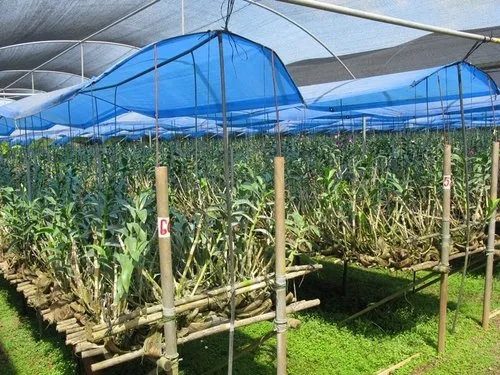Farming is considered most important in economic growth of nation worldwide. Agriculture is supposed to be the most employment generating sector. To ensure that crop yields are protected from termites, insects, and germs we need eco friendly agricultural tarpaulin as a protective cover. These tarpaulins are designed with weather protected material that are UV resistant and water proof. At this point, tarpaulins prove to be really useful. For contemporary farming, tarpaulins are an essential piece of equipment.
Understanding tarpaulin meaning
One kind of tarpaulin, which is occasionally mentioned to as a tarp, is generally made via a sturdy and water-resistant material like canvas or polyethylene. The protection of crops, livestock, and agrarian equipment from bad weather conditions, such as intense rains, high winds, and extreme sunshine, is the major purpose of this product within the farmed industry. Let us know the uses
Protection of the Soil and the Retention of Moisture:
Canvases are an important material in agricultural techniques because they prevent soil erosion and aid in the preservation of moisture, both of which are needed for plant growth. In order to minimize soil deterioration brought on by wind and rain, tarpaulin coverings should be placed over cultivated areas. This will ensure that the environment is stable for the development of plants.
Weed Control and Suppression: Weed Suppression
The capacity of tarpaulin to prevent the development of weeds is one of the most significant advantages of making use in agricultural situations. It is possible for farmers in many places to construct a barrier that prevents the sprouting and development of weeds by covering the soil with tarpaulin. This reduces the amount of competition that crops have for nutrients and sunshine, which in turn leads to higher yields.
Increasing the length of the season and regulating the temperature
Crop protection is essential for maintaining the crop quality to standard level for general public. Damage of crops can be caused due to harsh weather condition specially with frost, hail storms, high temperature, and direct rays of the sun can ruin the agriculral crop yield and cause financial burden to the farmers. For country where agriculture is main source of occupation agricultural crops can be considered as a wise decision for crop protection.
Reasons to go with the most trustworthyAgriculture tarpaulin manufacturers
It is not a choice that should be made quickly when it comes to selecting the finest manufacturer of agricultural tarpaulins. It is necessary to provide careful attention and do research in order to guarantee that the product you are investing in is one that satisfies your particular agricultural requirements and can bear the rigorous circumstances that are present in the field.
The agricultural tarpaulin manufacturer understands the basic requirements of the tarpaulin that are used for crop protection. They build cost effective strategies for utilizing optimal resources or raw materials that can help farmers protect crops from harsh weather conditions and termites, flies, or insect that spoil the crop quality and are major reason to reduce the crop yield.
The function of the product made by the makers
They prevent the growth of weeds, have the ability to lengthen the growing season, and help the soil retain moisture by covering it. In addition, tarpaulins may be used as mulch, which protects plants from harsh weather while also reducing the amount of water they need.
They have a useful use in farming storage, where they protect both the product and the equipment from unfavourable circumstances. Additionally, these malleable coverings may be used to make temporary shelters for cattle of any size. Tarpaulins of high quality, when used correctly, play an important part in improving crop quality, lowering water use, and providing protective cover for a wide range of cultivated operations, which has a climate that varies depending on the season. When it comes to the manufacture of the product, the industrial function is largely accountable for the implementation and operation of the production system. Not only does the production process include the actual making of the component, but it may also involve the fulfilment, distribution, and installation of the factor.



